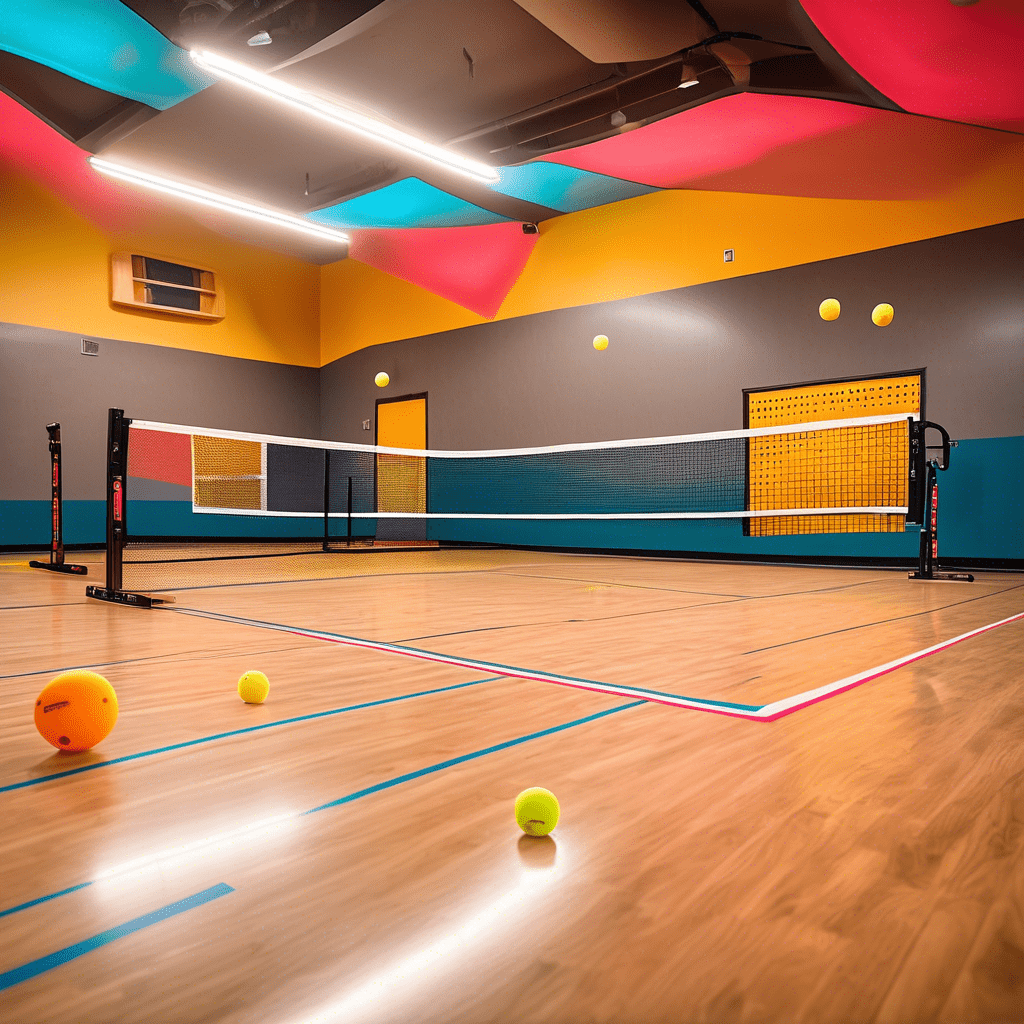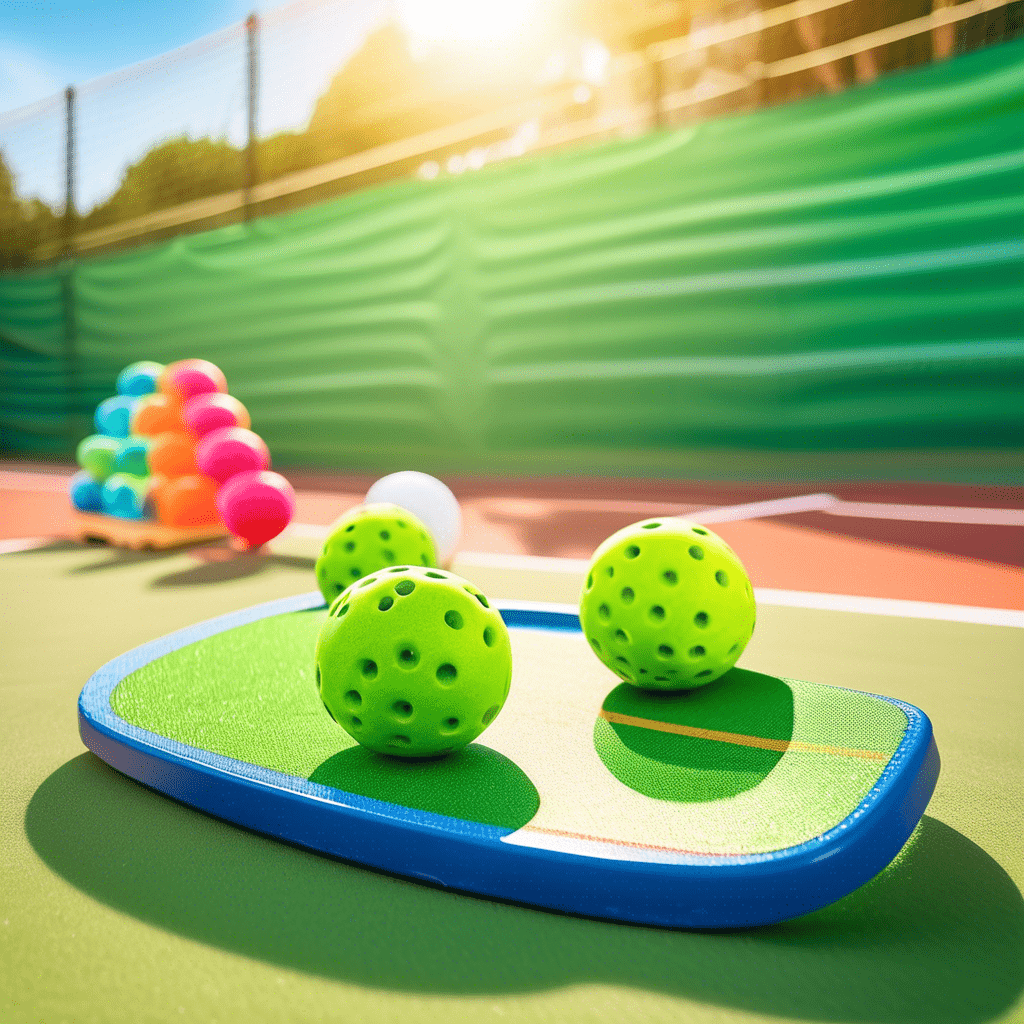Pickleball has taken the sports world by storm, captivating players of all ages and skill levels with its unique blend of tennis, badminton, and table tennis. As the popularity of this exciting sport continues to soar, more and more people are seeking ways to improve their game and learn the ropes. Enter pickleball classes – the perfect solution for beginners and seasoned players alike who want to elevate their skills and dive deeper into the world of pickleball.
In this comprehensive guide, we’ll explore everything you need to know about pickleball classes, from their benefits to what you can expect in a typical session. We’ll also provide tips on how to choose the right class for your needs and offer insights into the various types of classes available. So, whether you’re a complete novice or looking to fine-tune your skills, read on to discover how pickleball classes can transform your game and enhance your enjoyment of this fantastic sport.
The Benefits of Pickleball Classes

Pickleball classes offer a myriad of benefits for players at all levels. Let’s dive into some of the key advantages of enrolling in a pickleball class:
1. Proper Technique and Form
One of the most significant benefits of taking pickleball classes is learning proper technique and form from experienced instructors. While you might pick up the basics by watching YouTube videos or playing with friends, nothing beats the personalized guidance of a skilled coach. They can help you develop a solid foundation in the fundamentals, ensuring you’re using the correct grip, footwork, and stroke techniques.
By mastering these essential elements early on, you’ll not only improve your game but also reduce the risk of developing bad habits that can be difficult to break later. Proper form is also crucial for preventing injuries and maximizing your performance on the court.
2. Structured Learning Environment
Pickleball classes provide a structured learning environment that can accelerate your progress. Instead of figuring things out through trial and error, you’ll benefit from a carefully designed curriculum that covers all aspects of the game in a logical sequence. This structured approach ensures that you build a solid foundation before moving on to more advanced concepts and strategies.
Moreover, classes often include drills and exercises specifically tailored to improve different aspects of your game, such as serving, volleying, or dinking. This focused practice can help you make rapid improvements in areas where you might struggle when playing casually.
3. Personalized Feedback and Correction
One of the most valuable aspects of pickleball classes is the opportunity to receive personalized feedback and correction from your instructor. They can observe your play, identify areas for improvement, and provide specific tips and techniques to help you overcome challenges.
This immediate feedback loop is invaluable for making quick progress and avoiding the reinforcement of incorrect techniques. Your instructor can also help you understand the rules of pickleball and how to apply them effectively in game situations.
4. Social Interaction and Community Building
Pickleball classes offer an excellent opportunity to meet like-minded individuals who share your passion for the sport. You’ll have the chance to interact with players of various skill levels, learn from each other, and potentially form lasting friendships or find regular playing partners.
This social aspect of classes can make learning more enjoyable and motivating. It’s also a great way to expand your pickleball network, which can lead to more playing opportunities and a deeper involvement in the local pickleball community.
5. Skill Assessment and Goal Setting
Many pickleball classes begin with a skill assessment to determine your current level of play. This evaluation helps instructors tailor the class content to your specific needs and abilities. It also provides you with a clear understanding of your strengths and areas for improvement.
Based on this assessment, you can work with your instructor to set realistic goals for your pickleball journey. Whether you’re aiming to master a particular shot, improve your overall game, or prepare for tournament play, having clear objectives can help you stay focused and motivated throughout your learning process.
What to Expect in a Pickleball Class
Now that we’ve covered the benefits of pickleball classes, let’s take a closer look at what you can expect when you sign up for a class:
1. Introduction and Warm-up
Most classes begin with a brief introduction, where the instructor outlines the goals for the session and leads the group through a warm-up routine. This typically includes light cardio exercises and dynamic stretches to prepare your body for the physical demands of pickleball.
2. Skill-specific Drills
The bulk of the class usually consists of skill-specific drills designed to improve various aspects of your game. These may include:
- Serving practice
- Volleying exercises
- Dinking drills
- Footwork and positioning drills
- Shot placement practice
Your instructor will demonstrate each drill, explain its purpose, and provide feedback as you practice. They may also introduce progressions or variations to challenge you as you improve.
3. Game Situations and Strategy
As you progress, classes often incorporate game situations and strategy discussions. This might include learning about the kitchen (non-volley zone) rules, understanding court positioning, and developing effective doubles strategies.
4. Controlled Gameplay
Many classes include time for controlled gameplay, where you can apply the skills and strategies you’ve learned in a match-like setting. This might involve playing points, games, or mini-tournaments with your classmates under the instructor’s supervision.
5. Cool-down and Review
Classes typically conclude with a cool-down period and a brief review of the key points covered during the session. Your instructor may also provide suggestions for areas to focus on between classes and answer any questions you might have.
Types of Pickleball Classes

Pickleball classes come in various formats to cater to different needs and preferences. Here are some common types of classes you might encounter:
1. Beginner Classes
These classes are designed for those new to pickleball or with limited experience. They focus on teaching the basic rules of pickleball, fundamental techniques, and essential strategies. Beginner classes often emphasize proper grip, serving techniques, and basic shot-making skills.
2. Intermediate Classes
Intermediate classes are geared towards players who have mastered the basics and are looking to refine their skills. These classes might focus on more advanced techniques, shot selection, and strategic play. Topics could include perfecting the third shot drop, improving consistency, and developing a more varied shot repertoire.
3. Advanced Classes
Advanced classes cater to experienced players looking to take their game to the next level. These sessions often delve into complex strategies, advanced shot-making techniques, and mental game preparation. They may also include video analysis and personalized coaching to address specific areas of improvement.
4. Specialty Classes
Some facilities offer specialty classes that focus on specific aspects of the game, such as:
- Serving clinics
- Doubles strategy workshops
- Shot-specific classes (e.g., mastering the dink)
- Tournament preparation classes
5. Private Lessons
For those seeking individualized attention, private lessons offer one-on-one instruction tailored to your specific needs and goals. These sessions can be particularly beneficial for addressing persistent issues in your game or preparing for competitive play.
Choosing the Right Pickleball Class
With so many options available, it’s essential to choose a pickleball class that aligns with your goals, skill level, and learning style. Here are some factors to consider when selecting a class:
1. Assess Your Current Skill Level
Be honest about your current abilities and choose a class that matches your skill level. If you’re unsure, many facilities offer skill assessments or trial classes to help you determine the most appropriate level.
2. Define Your Goals
Consider what you hope to achieve through the classes. Are you looking to learn the basics, improve your overall game, or focus on specific skills? Having clear goals will help you select a class that aligns with your objectives.
3. Research Instructors
Look for classes led by certified instructors with a proven track record. Read reviews, ask for recommendations from fellow players, and don’t hesitate to reach out to instructors directly with any questions.
4. Consider the Class Format
Think about whether you prefer group classes, semi-private lessons, or one-on-one instruction. Each format has its advantages, so choose the one that best suits your learning style and budget.
5. Check the Schedule and Location
Ensure that the class schedule fits your availability and that the location is convenient for you. Consistency is key in improving your skills, so choose a class that you can commit to regularly.
Making the Most of Your Pickleball Classes
To maximize the benefits of your pickleball classes, consider the following tips:
1. Come Prepared
Arrive at class with the proper pickleball gear, including a suitable paddle, comfortable clothing, and appropriate footwear. Being well-equipped will allow you to focus on learning rather than worrying about your equipment.
2. Be Open to Feedback
Approach your classes with an open mind and be receptive to feedback from your instructor. Remember that constructive criticism is meant to help you improve, not to discourage you.
3. Practice Between Classes
To reinforce what you’ve learned, try to practice between classes. This could involve solo drills, playing with friends, or simply reviewing the techniques covered in class.
4. Ask Questions
Don’t hesitate to ask questions during class if something isn’t clear. Your instructor is there to help, and your questions might benefit other students as well.
5. Set Realistic Expectations
Remember that improvement takes time and consistent effort. Set realistic expectations for your progress and celebrate small victories along the way.
Conclusion
Pickleball classes offer an excellent opportunity to improve your skills, meet fellow enthusiasts, and deepen your enjoyment of this fantastic sport. Whether you’re a beginner looking to learn the basics or an experienced player aiming to refine your technique, there’s a class out there that can help you achieve your goals.
By understanding the benefits of structured instruction, knowing what to expect in a typical class, and choosing the right format for your needs, you’ll be well-equipped to make the most of your pickleball learning journey. So why wait? Find a class near you and take the first step towards elevating your pickleball game today!
Remember, the key to success in pickleball – as in any sport – is consistent practice and a willingness to learn. With the right instruction and a positive attitude, you’ll be amazed at how quickly your skills can improve. So grab your paddle, step onto the court, and get ready to experience the joy and excitement of pickleball like never before!